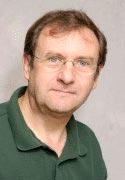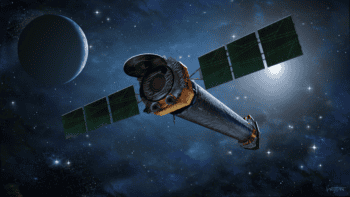
One of South Africa’s top astronomers, Phil Charles, has been reinstated as director of the South African Astronomical Observatory (SAAO) having been cleared of sharing confidential information with “outsiders”. Charles had been suspended last month by the National Research Foundation (NRF) of South Africa for “leaking” parts of “confidential foundation documents”.
Physicsworld.com has learned that these documents concerned plans to restructure the management of national facilities such as the SAAO, and plans for the site of the operations centre for the forthcoming MeerKAT radio telescope.
On 12th March, however, an independent hearing found Charles not guilty of the charges, because the “outsiders” – who turned out to be senior South African and US astronomers – had a right to know. Sources close to Charles say that the matter began in December with an e-mail to him from the vice-president of the NRF, Gatsha Mazithulela.
In the e-mail – which apparently was not marked confidential – Mazithulela detailed the restructuring of national facilities and the newly selected site of the operations centre of MeerKAT, which is currently being built in South Africa as a prototype of the Square Kilometer Array (SKA). SKA, which will be built in either Australia or South Africa, will combine the signals from thousands of small antennae spread over a distance of more than 3000 km to make a radio telescope capable of extremely high sensitivity and angular resolution.
‘Immense damage’
Recognizing that the information had consequences for the facilities and for local university astronomers, Charles shared it with other senior colleagues in the hope that a formal announcement could be delayed until the astronomical community had had a chance to discuss the matter. These senior colleagues included astronomers at the University of Cape Town and Ted Williams, the US astrophysicist who chairs the board governing the SAAO’s SALT telescope.
“It was clear with the MeerKAT centre that immediate action was required to avoid embarrassment to the minister [of science and technology] if the choice of site was disputed after the announcement, which was quite likely as it appeared that no astronomers had been consulted,” says one of Charles’s close colleagues who did not want to be named.
Another colleague says that the NRF’s “head-in-the-sand attitude” had caused “immense damage” to South Africa’s scientific reputation. “Had this been handled in an open and consultative manner, instead of adopting a secretive and intimidating approach, all of this could easily have been avoided,” he says. Charles could not be reached for comment.
Still ongoing
However, it appears as though the matter may still not be settled. Patrick Thompson, group executive of stakeholder relations at the NRF, said in a written statement: “The NRF believes that the issues that gave rise to these proceedings may still exist and that they still require [to] be dealt with. Be that as it may, the NRF accepts the verdict of the independent chair, and will therefore not contest its final conclusion.”
Yesterday the Royal Society of South Africa issued a statement criticizing the NRF’s actions. “The major charge [Charles] faced was that he had shared ‘secret information’ with colleagues regarding decisions the NRF had taken in connection with the future of astronomical facilities in South Africa,” it read. “However, this was information that these very colleagues should have been given by the NRF and indeed, because they are stakeholders, they should also have been party to the process that led to these decisions.”
“The action taken against Prof. Charles has disturbed the international scientific community and placed a grave question mark against South Africa’s international scientific reputation,” it adds. “Corporate governance would appear to be lacking and clear policy direction ignored.”




